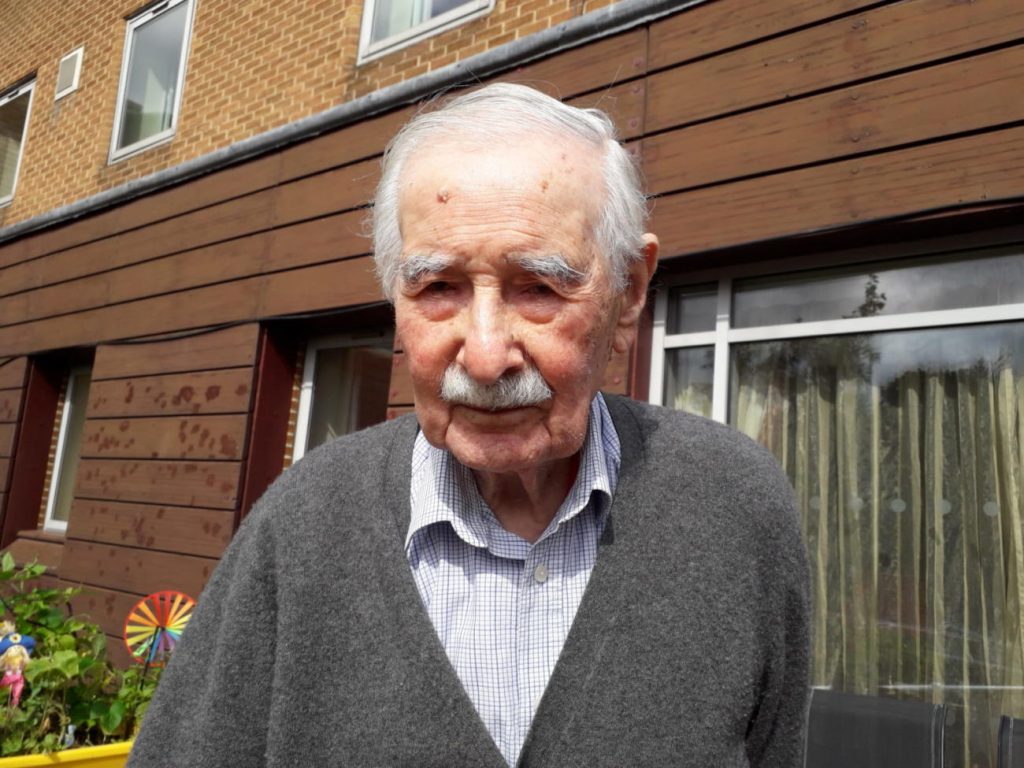[vc_row type=”in_container” full_screen_row_position=”middle” scene_position=”center” text_color=”dark” text_align=”left” overlay_strength=”0.3″ shape_divider_position=”bottom” bg_image_animation=”none”][vc_column column_padding=”no-extra-padding” column_padding_position=”all” background_color_opacity=”1″ background_hover_color_opacity=”1″ column_link_target=”_self” column_shadow=”none” column_border_radius=”none” width=”1/1″ tablet_width_inherit=”default” tablet_text_alignment=”default” phone_text_alignment=”default” column_border_width=”none” column_border_style=”solid” bg_image_animation=”none”][vc_column_text]
Helen Frais, former Makor cultural director discusses her mission to unearth the stories of Leeds’ medical heroes and establish the Jewish Medical Archive.
[/vc_column_text][/vc_column][/vc_row][vc_row type=”in_container” full_screen_row_position=”middle” scene_position=”center” text_color=”dark” text_align=”left” overlay_strength=”0.3″ shape_divider_position=”bottom” bg_image_animation=”none”][vc_column column_padding=”no-extra-padding” column_padding_position=”all” background_color_opacity=”1″ background_hover_color_opacity=”1″ column_link_target=”_self” column_shadow=”none” column_border_radius=”none” width=”1/1″ tablet_width_inherit=”default” tablet_text_alignment=”default” phone_text_alignment=”default” column_border_width=”none” column_border_style=”solid” bg_image_animation=”none”][vc_column_text]“He’ll be the doctor and she’ll be the dentist!” This is what Jewish mothers of old said to their children. Today, many parents continue to kvell from their children’s esteemed status in the medical professions.
Our Jewish heritage archive is lacking a designated section about our medical heroes, without whom many of our parents wouldn’t be alive today. We invite the community to contribute their fond memories of our Jewish medical professionals, who despite facing great adversity in the NHS, made an indelible impact on the lives of our loved ones.
We’re on the hunt not just for doctors and dentists, as we cast our net wide for stories about Leeds’ own Jewish medical heroes from nurses to midwives, to pharmacists and podiatrists and beyond, with new age medical stories welcome.
Several volunteers have already joined our small team of researchers, seeking to help with interviews, fact-finding, transcribing, collating and fundraising with the aim of creating a book about our community’s recollections.
A special, notable speaker event is planned to launch this book alongside an exhibition of medical memorabilia with funds raised supporting Cancer Research and Donisthorpe Hall.
If you or your family would like to put forward medical personalities, either historic or contemporary, we are looking to share your stories and record the experiences of these very special people.
If you’d like to volunteer or contribute your stories to the new Jewish Medical Archive, contact Helen Frais at afrais@tiscali.co.uk.
Here are some of the stories the Jewish Medical Archive has already discovered…
Elisabeth Baker has passed on information about her relatives, including her grandfather Dr Samuel who qualified in 1912. Set to read English at university, he was encouraged to study Medicine instead, going on to become a captain in the Royal Army Medical Corps (RAMC) during the First World War.
Elisabeth’s father, Dr A.S. Baker, was part of the RAMC 1st airborne division and was the second ever doctor to parachute out of a plane.
Her uncle, Dr Clive Samuel was a major in the RAMC and a commanding officer of 144 Parachute Field Ambulance servicemen. In 1965, he was awarded a medal for gallantry in Aden, Yemen. As lieutenant colonel, he was in charge of medical cover for the Prince of Wales Investiture in 1969, but suffered a fatal coronary in a practice jump the day before the main event.
99 year-old Donisthorpe Hall resident Dr Morris Stanton, spoke to Helen about his Second World War experiences, right up to his work as a Leeds GP. A child of early Polish immigrants from Rostralenka, his father came to Leeds speaking no English to become a trouser presser. Along with three siblings, Morris lived at 26 Lion Street next to Tiger Street in the Leylands, where they had gaslights and shared outside toilets.

At the City of Leeds High School with no anatomy, chemistry or physics qualifications, he worked before and after school for 7/6d a week as the sixth form chemistry monitor, giving his earnings to his mum to save.
To work in the civil service, applicants’ parents had to be born in the UK, so medicine proved a popular choice for Jewish students, despite antisemitism often excluding them from working in many of the hospitals.
At 17, he achieved early entry to Leeds Medical School, leaving with first class honours. His Second World War service saw him riding his bike to visit patients as bombs were falling. One round saw him delivering 20 babies. He was also called to extinguish a blaze ignited by a German incendiary bomb falling on Park Row.
In 1944 he was stationed in India having travelled in a flotilla of 32 ships carrying 4,000 troops, suffering monsoon rains and mosquitoes in a transit camp on the Pakistan border.
A year later, he was based in Suez and in his free time took the train to Haifa, staying at the King David Hotel in Jerusalem. A later posting took him to Salonica (Thessaloniki) in Greece where he conducted research in pathology, before becoming a Leeds GP.
Working from his surgery, he needed over 2,000 patients to make a living: “You could never turn a patient away”, said Morris. “As there was no appointment system it was better to wait half an hour, rather than two weeks for an appointment as it is today!”[/vc_column_text][/vc_column][/vc_row]

